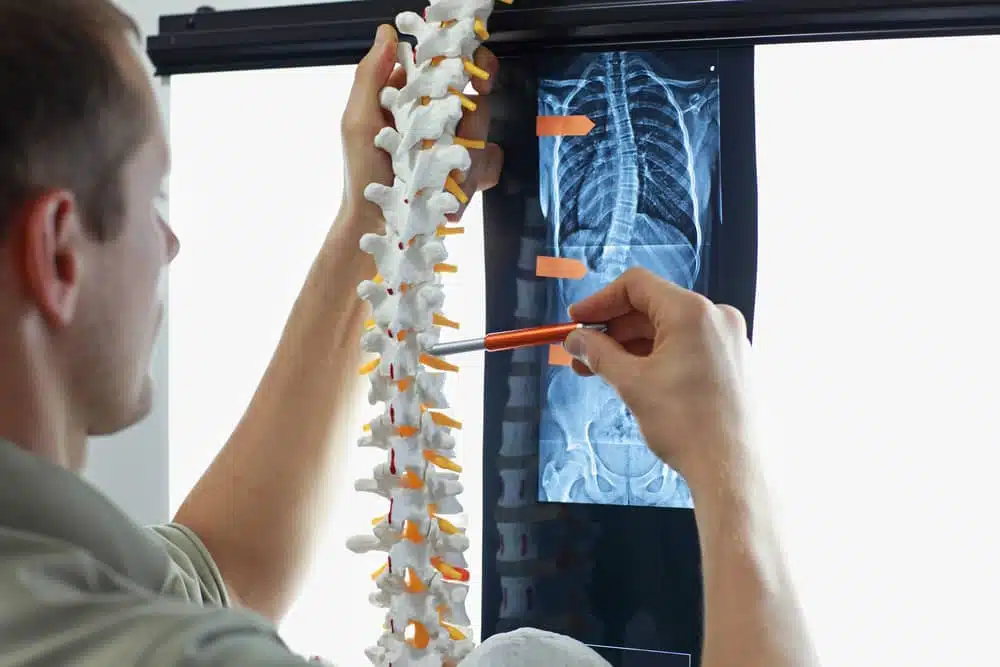A Look at What is Degenerative Disc Disease

You have been diagnosed with degenerative disc disease. What is your next step? Don’t fret over a scary-sounding name, instead you should look for the best treatment options for you. There is neck pain relief and back pain relief near the Woodlands with various ways to treat your degenerative disc disease and other ailments you might have.
What Is Degenerative Disc Disease?
When someone hears they have degenerative disc disease, their mind might jump to different conclusions. How much worse will this back pain get? Can I continue my active lifestyle? Do I need to have surgery? This condition sounds like an increasingly alarming issue to have, but it is a mistake. The term “degenerative” describes the degeneration of the disc over time, not that the pain will continue to get worse. Also, it is not considered a disease, but rather a condition that is a natural part of aging. While you should seek treatment, degenerative disc disease does not have to be a condition that continuously threatens your life.
What Causes Degenerative Disc Disease?

Each of the vertebrae in your spine are separated and cushioned by an intervertebral disc. These discs are pieces of cartilage that are rubbery along the rim, called the annulus, and soft in the middle, or the nucleus. When you are under 30 years of age, these discs are mostly comprised of gelatin, which gives them their cushioning ability. As you age, the amount of gelatin in each disc reduces and the discs become flatter and lose flexibility, making them less effective as cushions for the bones in your spine. Besides age, smoking, obesity, inactiveness, and heavy physical work are all risk factors for degenerative disc disease.
What Symptoms Should I Know About?
When it comes to degenerative disc disease, the most obvious symptom is pain and what makes it better or worse. The pain will likely be in the lower back or neck. It is usually related to movement, with flare-ups until the pain lessens or disappears completely. The amount of chronic pain the patient feels varies from slight irritation to severe, debilitating pain. Also, certain positions and actions, such as bending, twisting, and sitting, can make the pain worse. On the opposite side, sometimes walking and running, along with frequent changes in position, might make the patient feel better.
How Is Degenerative Disc Disease Diagnosed?

If your doctor suspects you have degenerative disc disease, they will review your medical history and give you a thorough examination. Diagnostic tests for this condition will measure your strength in relative muscle groups, the range of motion in your spine, arms, and legs, and the state of your posture and walk. Your doctor will also ask you about the location and characteristics of your pain symptoms.
How Do I Treat Degenerative Disc Disease?
Treating disc disease does not have to be a scary ordeal. In most cases, what is degenerative disc Disease treatment involves pain management so that the patient can engage in rehabilitation exercises? Medical professionals, such as chiropractors, also encourage a change in lifestyle habits, such as bad posture. In worst-case scenarios, a doctor might direct you to pursue surgical options. See a specialist for all of your back pain concerns.